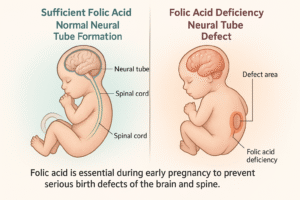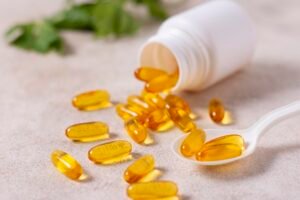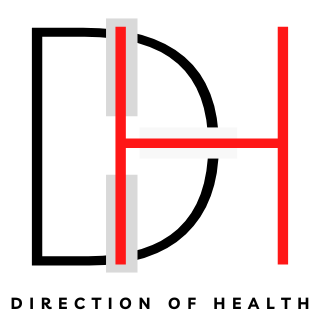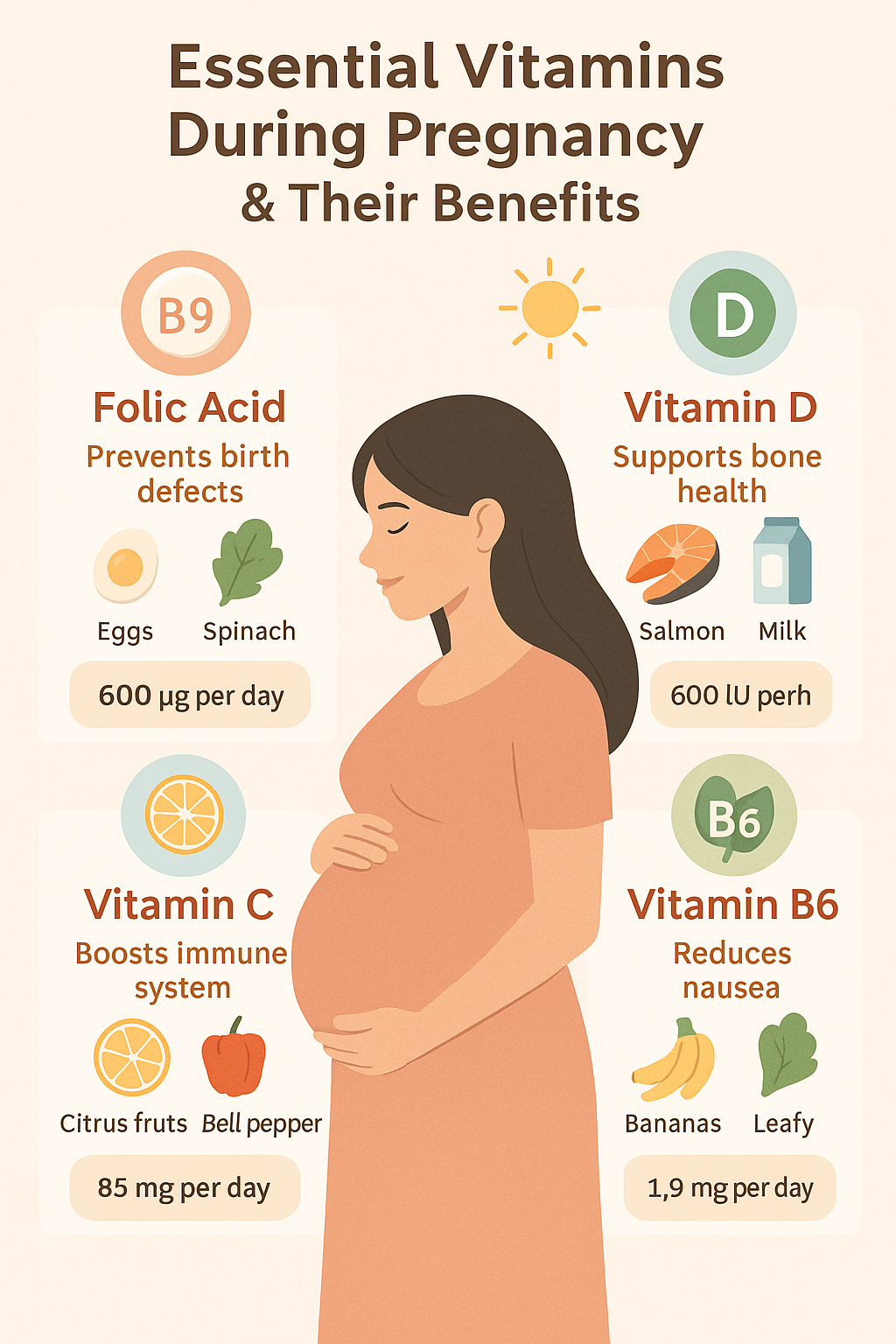Vitamins women need during pregnancy is crucial as women have different phases in their life due to which their body goes into many hormonal and physical changes. Mainly their body undergoes four main phases that are menstruation, pregnancy, breastfeeding and menopause.
During every phase whether that is pregnancy, lactation, periods or menopause, their body needs extra nutrition and vitamins. These nutritious and vitamins should be preset in their diet. In short we can say that vitamin plays crucial role throughout the life of a women.
In this article we will explore key vitamins women need during pregnancy and how you can get them through healthy diet.
Table of Contents
ToggleVitamins Women Need During Pregnancy

Pregnancy is a phase in women life where she needs diet not only to feed her but to nourish the baby as well. Baby relies on mother from brain development to formation of organs and bones. So her needs of vitamin are far greater than a normal woman.
A women needs the following vitamins during pregnancy as her needs of vitamins is different form normal woman.
Vitamin B9 (Folic Acid)
Vitamin B9 which is also known as folic acid or folate is essential vitamin women need during pregnancy as it is needed by mother and baby.

It is recommended to start taking folic acid one month before pregnancy. It supports the cell division and and prevents neural tube defects in baby. Although about 40 percent of pregnancy are unplanned but it is essential in first trimester of pregnancy
Folic acid is also involved in the replication of DNA and RNA and many catalytic processes which are taking place inside a pregnant mother.
Folic acid is necessary for mother as well as it prevents the anaemia and peripheral neuropathy. During pregnancy plasma to haemoglobin concentration decreases which result in the anemia of mother. If a mother takes folic acid then anemia can be prevented.
Natural Sources of Folic Acid
It is present naturally in many food items.
- Dark green leafy vegetables (turnip greens, spinach, romaine lettuce, asparagus, Brussels sprouts, broccoli)
- Eggs
- Whole grain
- Aquatic foods
- Liver
- Beans
- Peanuts
- Sunflower seeds
- Fresh Fruits
Fortified Sources of Vitamin B9
In the United States it is compulsory to fortify the grain products with folic acid since January 1998. It is also legislative mandatory in Canada since December 1998 to fortify the grain products with folic acid.
These products include flour, cereals and pasta. You need to read the ingredient on the label to check the presence of folic acid inside the product.
Daily Requirement of Folic Acid during Pregnancy
According to US National Institute of Health (NIH) and Institute of Medicine 600µg daily should be taken by a pregnant woman throughout the pregnancy.
If a woman has family history of NTD then she should take 5mg prior to conception and throughout pregnancy.
Vitamin D and Pregnancy

Vitamin D is important vitamin women need during pregnancy as it helps the absorption of calcium and phosphorus. It is also needed for the muscles, bone and teeth development. Its deficiency may also cause preeclampsia.
A recent study by American pregnancy organization states that intake of vitamin D during pregnancy prevents preterm birth and infections.
Sources of Vitamin D
As Vitamin D is present in limited number of foods and most of them are fortified so it is difficult to take it through diet. That is why its deficiency rate increases.
Vitamin D is also present in some foods, including:
- Oily fish (salmon, macherel, herring and sardines
- Egg yolks
- Red meat
- Liver
Note: Do not take oily fish more than two times in a week. Don’t eat liver during pregnancy for vitamin D.
Best source of vitamin D is sunlight.
Vitamin C Paired with Iron

Vitamin C helps in immunity development and during pregnancy it helps you in the formation of collagen. Collagen is the base of tendons, bones and skin.
It also increases the absorption of iron. Iron is essential during pregnancy as blood volume increases during this time period so vitamin C helps in iron absorption. In this way it prevents anemia during pregnancy.
Sources of Vitamin C
It is present in many fruits and vegetables. Following are some food items which have a good portion of it.
- Citrus fruits like oranges, lemon and grapefruit
- Strawberries
- Blueberries
- Kiwi
- Mango
- Papaya
- Pineapple
- Red and green peppers
- Spinach
- Kale
- Tomatoes
Note: It is recommended to eat these fruits and vegetables in raw form as heating destroys some of Vitamin C.

Daily Requirements of Vitamin C during Pregnancy
It is recommended by NIH that 14-18 years old pregnant women can take 80 mg per day. If your age is 19+ then take 85 mg per day.
Vitamin B6 during Pregnancy
If a pregnant woman is having nausea and morning sickness then vitamin B6 is helpful. It reduces nausea and morning sickness.
You can take it during first trimester if you are having nausea.
There is not enough data to support that whether it has any significant effects on fetus development.
We conclude that vitamins women need during pregnancy are crucial for the development of healthy baby and for mother as well. A healthy pregnancy is only possible when mother gets these essential vitamins for women during pregnancy through proper diet.
it is recommended to have rainbow fruits and vegetables, to get all nutrients and vitamins women need during pregnancy.
FAQs About Vitamins Women Need during Pregnancy
What are most important vitamins women need during pregnancy?
The most essential vitamins women need during pregnancy are folic acid (B9), vitamin D and vitamin C. These vitamins support fetal development, prevent birth defects and boost maternal immunity.
Why is folic acid important in early pregnancy?
Folic acid is essential in the first trimester to prevent neural tube defects like spina bifida. It also supports DNA synthesis and helps prevent anemia in the mother.
How can I naturally get enough vitamin D while pregnant?
You can get vitamin D through sunlight exposure and foods like oily fish, egg yolks, and fortified cereals. However, supplements may be necessary if you’re deficient, consult a medical professional before starting any supplement.
Can vitamin C improve iron absorption during pregnancy?
Yes, vitamin C boosts iron absorption from plant-based foods, which helps prevent iron-deficiency anemia, a common issue most women during pregnancy.
Is it safe to take vitamin B6 for morning sickness?
Yes, vitamin B6 is often recommended to reduce nausea and morning sickness in early pregnancy. However, consult your doctor before taking any supplements.
What’s the daily requirement of folic acid for pregnant women?
The recommended intake is 600 micrograms (µg) per day. Women with a history of neural tube defects should take 5 mg daily, starting before conception.
References
- https://pmc.ncbi.nlm.nih.gov/articles/PMC3218540/
- .US Food and Drug Administration, authors. Food Standards. Amendment of standards of identity for enriched grain products to require addition of folic acid. Fed Regist. 1996;61:8781–8796.
- Bureau of Food Regulatory. International and Interagency Affairs, Health C, authors. Regulatory impact analysis statement. Canada Gazette Part II. 1998;132:3029–3033
- https://nutritionsource.hsph.harvard.edu/folic-acid/
- https://wellmedbangkok.com/vitamins-and-supplements/#:~:text=Folic%20acid%2C%20a%20form%20of%20folate%2C%20plays,(NTDs)%20such%20as%20spina%20bifida%20and%20anencephaly.
- https://kidshealth.org/en/parents/preg-folic-acid.html
- https://americanpregnancy.org/healthy-pregnancy/pregnancy-health-wellness/vitamin-d-and-pregnancy/
- https://americanpregnancy.org/healthy-pregnancy/pregnancy-health-wellness/vitamin-d-and-pregnancy/
- https://www.nhs.uk/pregnancy/keeping-well/vitamins-supplements-and-nutrition/
- https://www.ncbi.nlm.nih.gov/books/NBK583021/
- https://www.who.int/tools/elena/interventions/vitaminb6-pregnancy
Disclaimer
The facts presented in this article are for academic and informational purposes only and isn’t intended as clinical advice. The material is based totally on present day studies and understanding, however it cannot be relevant to every man or woman’s circumstances. Constantly visit a healthcare expert or a certified specialist before making any modifications on your diet, exercise, or fitness regimen. The authors and publishers of this text do not receive any responsibility for any results springing up from th usage of the information supplied. Your fitness and well-being are important, so please seek for customised advice tailored on your precise needs and conditions.

